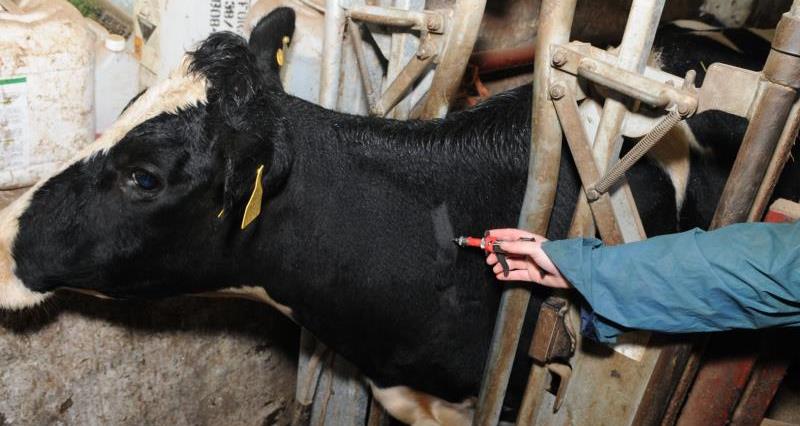Plans to implement tighter, six-monthly TB tests in Shropshire and Staffordshire will be deferred until after the Covid-19 pandemic is under control.
An update for veterinary professionals was made by the Animal & Plant Health Agency (APHA) on Friday (March 27).
Surveillance testing for Bovine TB, which is already mandatory in England’s High-Risk Area (HRA), was set to be increased in frequency in two counties – Shropshire and Staffordshire – from annual to six-monthly.
Defra didn’t give a date for the move, simply stating it would come into effect “later this year”. The department also added that six-month surveillance testing would be extended to all parts of the High-Risk Area from 2021.
However, the plans have now been pushed back.
The notice seen by AgriLand read: “Due to reduced veterinary capacity for TB testing during the Covid-19 pandemic and to ease the burden on farmers, the rollout of this policy is being deferred until the situation improves. Further information will follow in due course.”
In a statement on the impact of Covid-19 on its operations, APHA said it was planning for a reduction in veterinary capacity to carry out TB testing and said that a “priority system” may be put in place.
“APHA recognises the potential challenges faced by farmers during the COVID-19 pandemic,” it read.
APHA has a contingency plan in place for the specific scenario of reduced veterinary capacity to undertake TB testing. Prioritisation of certain types of TB tests may become necessary.
“APHA published advice for vets on March 19, 2020, in order to ensure a consistent approach to the prioritisation of TB testing across GB.
“Additionally, an APHA briefing note for vets in England was issued on March 24, 2020, giving advice about TB testing of cattle during the COVID-19 pandemic.
“At present, APHA is continuing with TB testing (government and private-funded), however, the UK chief veterinary officer is keeping this under constant review.
“APHA is continuing to closely monitor the situation, and adjustments to TB testing instructions may be made as appropriate.”

